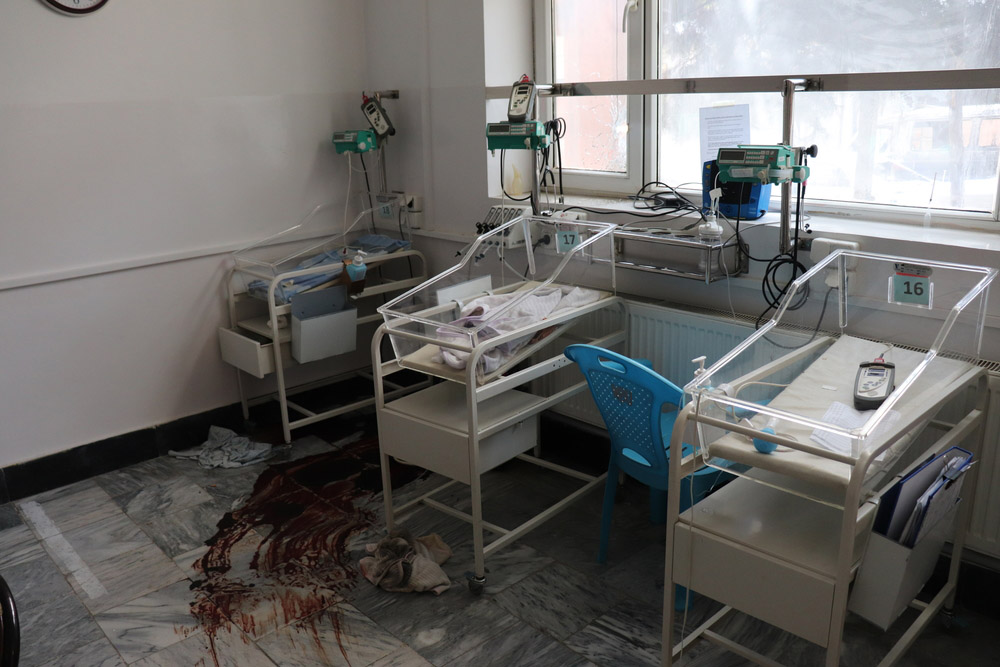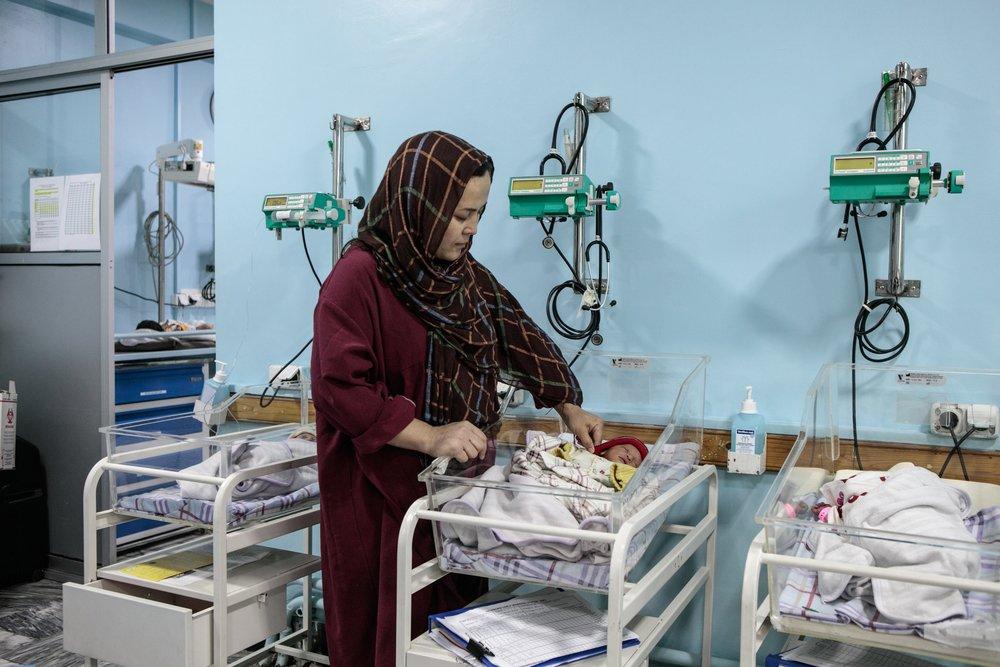On 12 May 2020, at around 10 am, the maternity ward opened by Doctors Without Borders in the Dasht-e-Barchi neighbourhood of Kabul in 2014, was attacked. The assailants went from room to room, assassinating 16 expectant mothers in their beds. Five of them were about to give birth. Several other people were killed, including a midwife employed by MSF and two children aged 7 and 8 years who were at the hospital that day the hospital to get their jabs.

Nobody has claimed responsibility for this horrendous attack. The Afghan government immediately accused the Taliban; the Taliban denied any involvement; the United States accused the Islamic State in Khorasan. The assailants have reportedly been killed during the assault carried out by Afghan and international armed forces while a hundred or so terrified mothers and MSF employees hid in the hospital's safe rooms. And no official investigation has produced any evidence on who perpetrated the attack.
One month later, we know next to nothing, but we know enough: whoever the perpetrators were, the targets of their attack were the Hazara women of Dasht-e-Barchi and their health care staff. And this is no isolated tragedy: it is part of a series of attacks against the Shi’ite Hazara minority, against civilians, against aid organisations. And it is part of a series of attacks against MSF, with more than 70 of our patients and personnel losing their lives since 2004.
In June 2004, five employees – two Afghans and three international staff - were killed in the province of Badghis. This assassination of five people, probably committed by a local police chief, was treated in the most off-hand manner by the Afghan authorities and remains unpunished. It resulted in MSF withdrawing from Afghanistan for five years. We returned in 2009, after a negotiated agreement with the government and with the Taliban who had since retracted the declarations made a few years earlier in which they designated us as legitimate targets. In October 2015, MSF's hospital in Kunduz was destroyed by a US air force bomber. This caused the deaths of 42 people, including 24 patients and 14 members of MSF’s staff, and injured 37 more. We returned to Kunduz two years later, after receiving assurances from all the armed groups with which we were in contact that we could resume our activities as humanitarian health care providers.
We were aware that our presence in Dasht-e-Barchi carried risks. This neighbourhood of Kabul, home to much of the Shi’ite Hazara community, has been the target of murderous attacks. The one on a university in August 2018 left a deep impression on those members of our teams who treated some of the dozens of victims of a suicide attack, claimed by Islamic State. We were aware of the risks, but we just couldn't believe that the worst would happen, that men would take advantage of the absolute vulnerability of women about to give birth to assassinate them and their babies. But the worst did happen, and it could happen again. Today, we have to accept this reality. We cannot protect ourselves from killers determined to exterminate our patients and our colleagues for whatever motive. Strengthening our security measures, building higher walls and increasing the number of safe rooms will not be enough to protect us from another nightmare such as the one we experienced in Dasht-e-Barchi.
We were aware of the risks, but we just couldn't believe that the worst would happen, that men would take advantage of the absolute vulnerability of women about to give birth to assassinate them and their babies
Thierry Allafort-Duverger, MSF General Director
We were aware of the risks, but we just couldn't believe that the worst would happen, that men would take advantage of the absolute vulnerability of women about to give birth to assassinate them and their babies
Today, Afghanistan is a high-risk country. Since it emerged there in 2014, Islamic State has developed its presence as evidenced by the attacks it has perpetrated on civilian populations and aid organisations over recent years. And the cycle of attacks and reprisals between the Taliban and the Afghan army continues. While “intra-Afghan” negotiations for a peace agreement remain an uncertain prospect, there is a major risk of seeing all those in the business of violence manifesting their refusal to compromise or seeking to demonstrate their importance by exercising their power to harm. In such a setting, the lives and deaths of humanitarian health workers and their patients are nothing more than an adjustment variable on the agendas of the forces active in the country.
After the horrible attack of 12 May, if we were to keep working in Dasht-e-Barchi and be honest with the teams that we deployed there, we would have to tell them that monstrous attacks like this could happen again, at any time. That a massacre of pregnant women and health care providers in a maternity ward in Kabul is normal risk. But it would mean becoming an organisation that plans for the loss of human lives - and can live with this idea. To our minds, this is unthinkable. As we are at the mercy of perpetrators of violence who consider us and our patients to be more useful dead than alive, we must refuse to take action at any cost and take the liberty of withdrawing.
This is why we are ceasing our activities in Dasht-e- Barchi. We will not be reopening the maternity wards and we are withdrawing our personnel.
We believe this decision to be necessary. But it is still heartbreaking. The Dasht-e-Barchi maternity ward was the only provider of emergency obstetric and neonatal care for the underprivileged population of this neighbourhood of southwest Kabul, and one of the busiest maternity wards supported by MSF in the world. Almost 16,000 women gave birth in that ward in 2019. More than 350 employees devoted their days and nights to it. Some of them tell us that they are willing to take the risk of returning. But we refuse to send them back in this context with courage and hope as the sole means of protection against another massacre.
